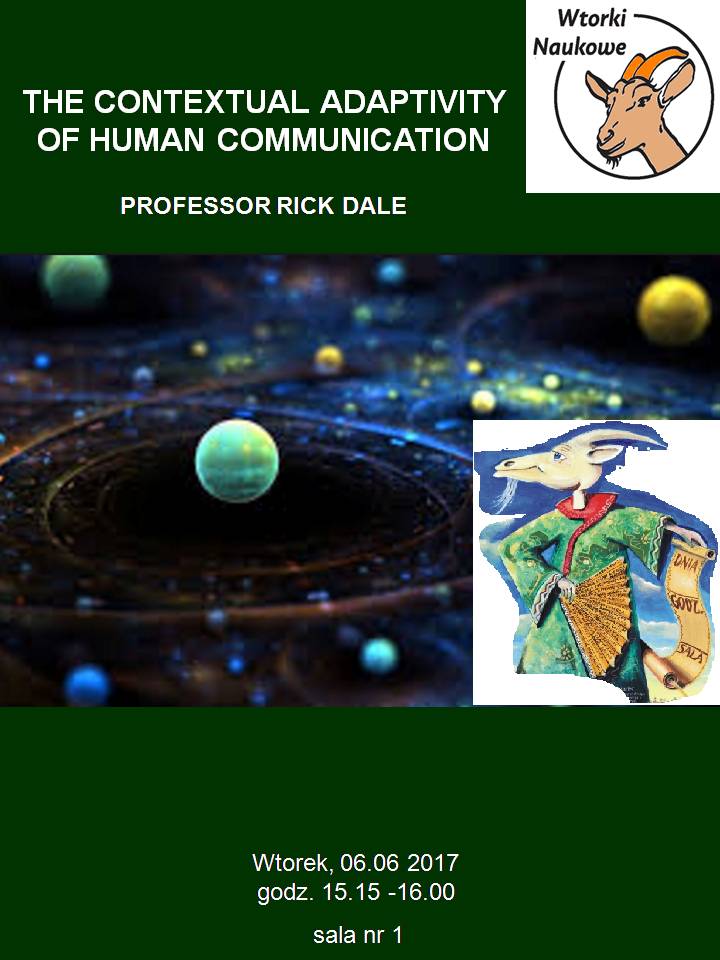Psychotherapy in English free of charge
06 czerwca 2017Psychotherapy in English free of charge
This offer is primarily addressed to people from outside of the Faculty of Psychology UW.
There are two free places for persons seeking psychotherapy conducted in English. The therapy will take place in the Academic Center of Psychotherapy (ul. Smyczkowa 11a, near Służew Metro Station) from October 2017 to May 2018 (Fridays, 10 a.m. or 11 a.m.). The therapy is free of charge.
The therapy is conducted by a psychotherapist (Szymon Szumiał) with presence/assistance of students who are enrolled in the last (5th) year of studies in the ‘Psychotherapy’ specialization at the Faculty of Psychology, University of Warsaw.
Those who are interested in participating in the psychotherapy are welcome to make an appointment by calling the therapist directly. Phone number: 608777841. If you need more information, please contact the therapist by e-mail: sz.szumial@gmail.com.
Because of the confidentiality rule, all WISP students and those who know WISP students from the fifth year of the Psychotherapy specialization cannot be accepted to this therapy.
http://www.psychology.pl/home/archive/new/1775
Wtorek Naukowy 6 czerwca 2017
05 czerwca 2017 Zapraszamy na ostatni już w tym semestrze Wtorek Naukowy 6 czerwca o godzinie 15.15 w sali nr 1. Wystąpi prof. Rick Dale (Cognitive & Information Sciences, University of California, Merced) z wystąpieniem pt. „The contextual adaptivity of human communication”.
Zapraszamy na ostatni już w tym semestrze Wtorek Naukowy 6 czerwca o godzinie 15.15 w sali nr 1. Wystąpi prof. Rick Dale (Cognitive & Information Sciences, University of California, Merced) z wystąpieniem pt. „The contextual adaptivity of human communication”.
Language is often hailed as a definitive feature of the human species. Its status in psychology and cognitive science has prompted considerable scientific debate. Is language a special mental toolbox supported by strict genetic pre-specification? Or is it an emergent phenomenon from an array of processes and constraints of the human context? In most of this work, the focus has been on „internal” conceptions of language. Language, however, is deeply contextual. It is embedded in a community of speakers who use it to coordinate together. If language is indeed a more fluid, adaptive feature of our species, then we should expect that it will dynamically adapt to the context of its use. I will present a series of studies suggesting that even the deepest aspects of language, such as its grammatical properties, resonate with the social environs of its use. Some new data will be presented, showing that recent methodological movements to use large and natural datasets, such as online internet communication, could provide a platform to explore these adaptive properties of language in real time.
http://cognaction.org/rick
ADOS-2 dostępny w Polsce!
Projekt adaptacji ADOS-2 koordynowały dr Izabela Chojnicka i prof. dr hab. Ewa Pisula z Wydziału Psychologii Uniwersytetu Warszawskiego.
Są one autorkami podręcznika do polskiej wersji ADOS-2.
ADOS-2 to wystandaryzowane narzędzie wykorzystywane w diagnozowaniu osób z zaburzeniami ze spektum autyzmu (ASD), jedno z najpopularniejszych i najwyżej cenionych narzędzi diagnostycznych stosowanych w rozpoznawaniu ASD!
Test został właśnie wydany (maj 2017) przez Hogrefe-Testcentrum, s.r.o., a w Polsce będzie rozprowadzany przez Pracownię Testów Psychologicznych Polskiego Towarzystwa Psychologicznego.
http://www.practest.com.pl/ados-2

Harmonogram sesji letniej 2017
02 czerwca 2017Sesja egzaminacyjna harmonogram
Rejestracja na seminaria magisterskie i prace empiryczne w roku akademickim 2017/2018
W celu zapisania się go grupy, należy bezpośrednio skontaktować się z wybranym promotorem/tutorem.
Po uzyskaniu zgody na dopisanie, rejestracja pojawi się na koncie w USOSweb.
Promotorzy prac magisterskich
numer nieparzysty – grupa dzienna
numer parzysty – grupa wieczorowa
Grupy zamknięte: 3, 9, 12, 16, 40, 42, 43, 54, 55, 74, 80, 83, 100, 104, 114, 118, 120, 122, 147
Tutorzy prac empirycznych
224, 225 – Furman Aleksandra
234, 235 – Kłakulak-Torba Weronika
244, 245 – Łowicki Paweł
289, 290 – Zdunik Katarzyna
297, 298 – Oleksy Tomasz
numer nieparzysty – grupa dzienna
numer parzysty – grupa wieczorowa
Grupy zamknięte: 5, 13, 14, 15, 23, 27, 31, 35, 36, 43, 48, 61, 63, 65, 71, 77, 78, 82, 85, 89, 103, 104, 119, 120, 121, 125, 133, 134, 137, 146, 150, 151, 210, 249, 277, 279, 280, 286, 287, 296, 297
Akademiki w roku akademickim 2017/2018
01 czerwca 2017Szanowni Państwo,

